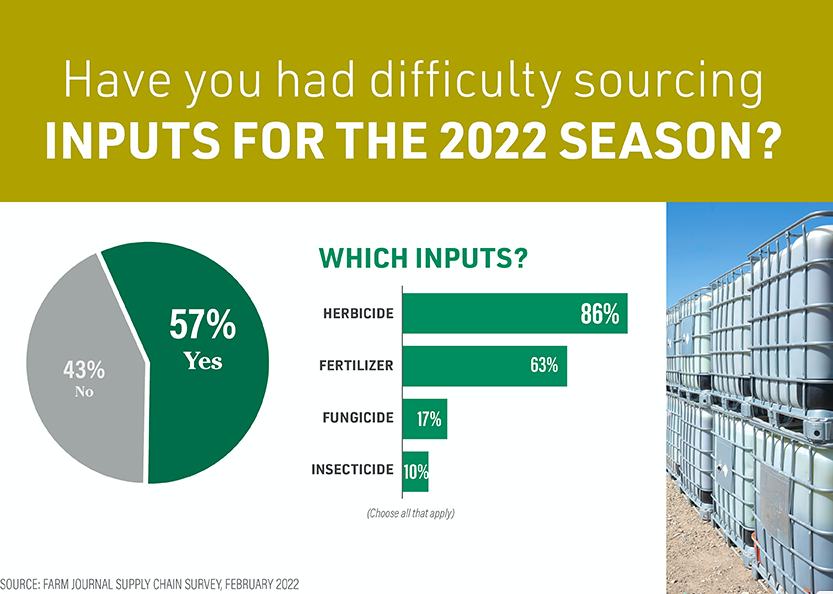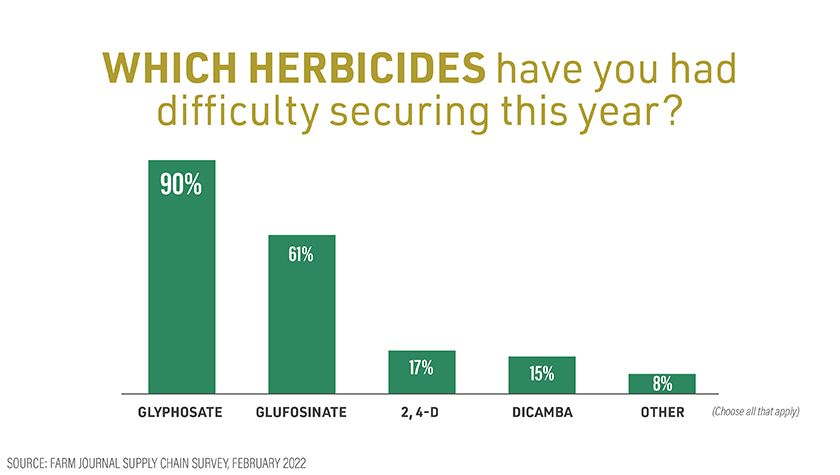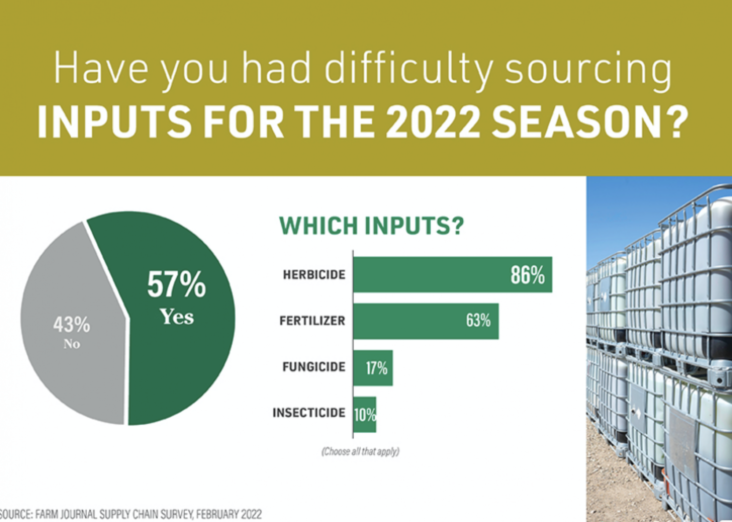
On Friday, Bayer sent a note to retailers saying due to production issues with a third-party ingredient supplier, the company won’t be able to fulfill some of its previously booked orders. Bayer declared a force majeure, which means due to the issue being out of Bayer’s control, the company will be able to escape contractual obligations.
In a statement to Farm Journal, Bayer says: “Recently a supplier of a raw ingredient needed to produce glyphosate suffered a mechanical failure, which may have some short-term impacts on our production of the active ingredient to manufacture glyphosate. Our supplier is on track to restore production, we’ve sourced additional materials and made other mitigation efforts to help best manage this situation. We expect any impact to be marginal in terms of our annual glyphosate production.”
Read more: Exclusive: How Did FBN Do The Impossible And Source Glyphosate for 2022? It Was Costly, But Paying Off Now
So, just how bad is it? One large ag retailer in the U.S. says it will have more of an impact on generic glyphosate supplies. The supplier told Farm Journal that as of Feb. 14, 2022, it has 80% of its branded Roundup in house. The generic market will be significantly impacted by the most recent supply chain issue, and their estimate is the generic market will see supplies cut in half.
Glyphosate Squeeze
Bayer didn’t quantify just how much of an impact it will have on overall production, but says it’s continuing to work diligently with customers to address their needs.


A newly released Farm Journal survey found even before the latest announcement, 57% of farmers say they had difficulty sourcing inputs for the 2022 season. Of those who had trouble booking inputs, 86% say herbicides were the issue.
Of those experiencing issues securing herbicides, 90% reported glyphosate is in the shortest supply for 2022.



